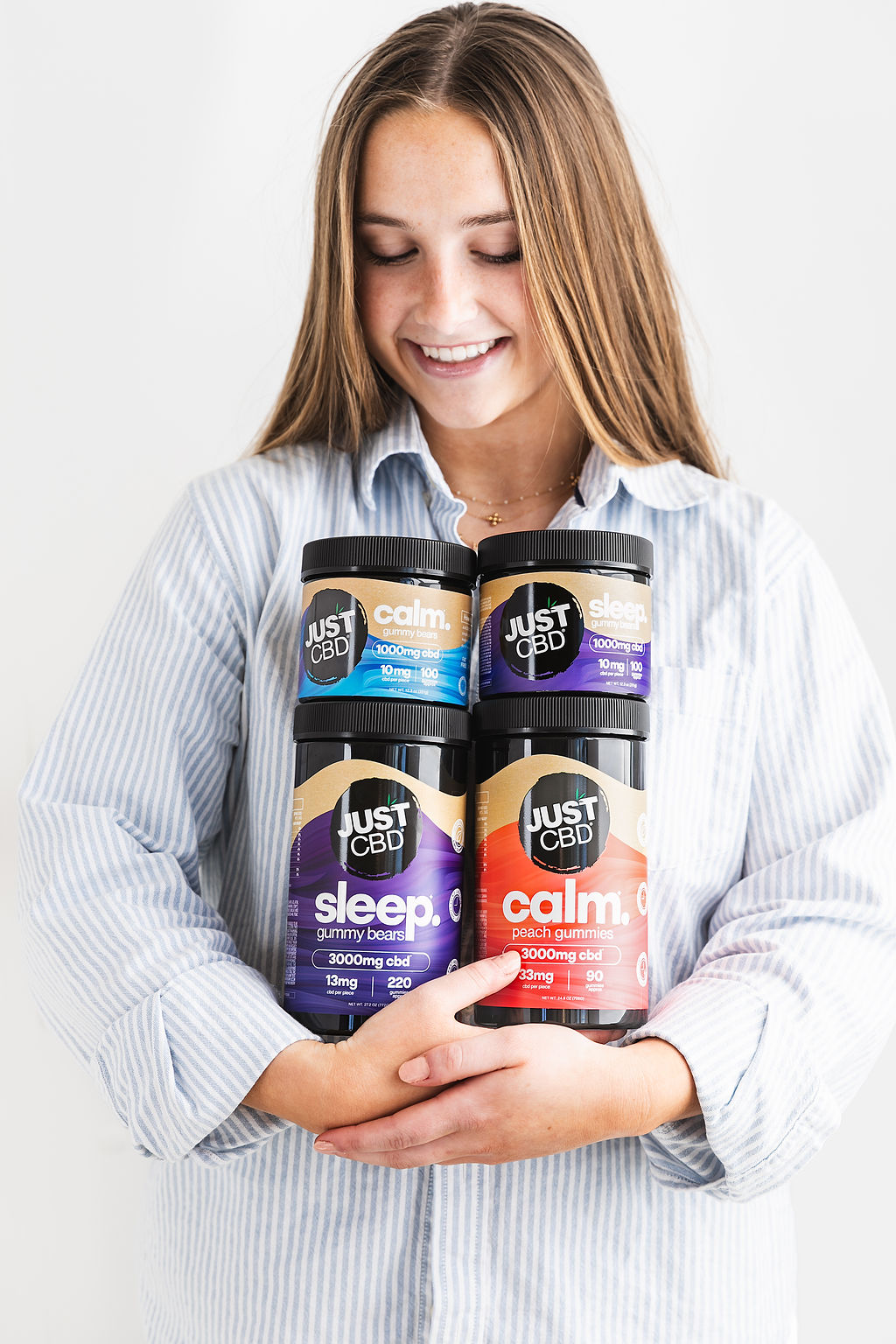CBD and Its Anti-Inflammatory Properties
CBD, short for cannabidiol, is a natural compound found in cannabis plants. Unlike THC, which causes psychoactive effects, CBD does not produce a high. It has gained significant attention for its potential therapeutic benefits, particularly its anti-inflammatory properties.
How CBD Interacts with the Endocannabinoid System

CBD exerts its anti-inflammatory effects by interacting with the endocannabinoid system (ECS), a complex network of receptors and neurotransmitters found throughout the body. The ECS plays a crucial role in regulating various physiological processes, including inflammation.
CBD binds to CB1 and CB2 receptors within the ECS. CB2 receptors are particularly abundant in immune cells, which are key players in the inflammatory response. By activating CB2 receptors, CBD can modulate the activity of these cells, reducing the production of pro-inflammatory molecules.

The Science Behind CBD’s Anti-inflammatory Effects
CBD exerts its anti-inflammatory effects by interacting with the endocannabinoid system (ECS), a complex network of receptors and neurotransmitters found throughout the body. The ECS plays a crucial role in regulating various physiological processes, including inflammation.
CBD binds to CB1 and CB2 receptors within the ECS. CB2 receptors are particularly abundant in immune cells, which are key players in the inflammatory response. By activating CB2 receptors, CBD can modulate the activity of these cells, reducing the production of pro-inflammatory molecules.
Additionally, CBD has been shown to inhibit the activity of enzymes involved in inflammation, such as cyclooxygenase-2 (COX-2) and lipoxygenase (LOX). These enzymes play a role in producing inflammatory mediators, so their inhibition can help reduce inflammation.
Research suggests that CBD may be effective in managing various inflammatory conditions, including arthritis, inflammatory bowel disease, and skin disorders. However, more research is needed to fully understand the mechanisms of action and long-term effects of CBD on inflammation.
CBD Vape Pens as a Delivery Method
CBD vape pens have emerged as a popular method for consuming cannabidiol, offering a rapid and discreet delivery system. By inhaling CBD vapor, users can experience quicker absorption into the bloodstream compared to other methods like edibles or topicals. This swift onset of action makes CBD vape pens potentially attractive for individuals seeking immediate relief from inflammation and swelling.

Pros of Using CBD Vape Pens for Inflammation
CBD vape pens offer a quick and discreet way to consume CBD, which is known for its anti-inflammatory properties. By inhaling CBD vapor, the substance enters the bloodstream rapidly, potentially leading to faster relief from inflammation compared to methods like edibles or topicals.
- Rapid absorption:**
- Discreetness:**
- Control over dosage:**
Inhaling CBD allows for quicker absorption into the bloodstream than other delivery methods. This rapid onset of action can be beneficial for those seeking immediate relief from inflammatory symptoms.
Vape pens are relatively discreet compared to methods like smoking or using topical creams, making them a more convenient option for some users.
Most CBD vape pens come with adjustable voltage settings, allowing users to control the amount of CBD they inhale per puff.
Cons of Using CBD Vape Pens for Inflammation
While CBD vape pens offer a rapid and discreet delivery method for CBD, there are some drawbacks to consider, especially when it comes to using them for inflammation.
One concern is the potential for lung irritation. Inhaling heated vapor can irritate the lungs, particularly for those with pre-existing respiratory conditions. Additionally, the long-term effects of inhaling CBD vapor are not yet fully understood.
Another concern is the lack of standardization in the CBD industry. The potency and purity of CBD products can vary widely between brands, making it difficult to determine the exact dosage being inhaled. This can make it challenging to achieve the desired therapeutic effect and increase the risk of adverse effects.
Furthermore, vaping any substance can be addictive, even if it doesn’t contain psychoactive compounds like THC. While CBD itself is not addictive, the act of vaping may lead to dependence on the device and the sensation of inhaling vapor.
It is important to consult with a healthcare professional before using CBD vape pens for inflammation or any other medical condition.
Research and Evidence Supporting CBD for Inflammation
Research increasingly points to the potential benefits of cannabidiol (CBD) in managing inflammation. CBD, a compound derived from cannabis plants, interacts with the body’s endocannabinoid system (ECS), a complex network involved in regulating various physiological processes, including inflammation. Studies suggest that CBD may reduce inflammation by modulating immune cell activity and inhibiting enzymes responsible for producing inflammatory mediators.
Studies on CBD and Inflammatory Conditions
Research indicates that CBD might be effective in treating various inflammatory conditions like arthritis, inflammatory bowel disease, and skin disorders. However, more research is needed to fully understand the long-term effects and mechanisms of action of CBD on inflammation.
Studies have explored the potential of CBD for managing pain associated with inflammation. Some studies suggest that CBD may help reduce pain signals in the nervous system, potentially offering relief from inflammatory pain conditions like arthritis.
While promising, it’s important to note that research on CBD and inflammation is still ongoing. More clinical trials are needed to confirm these findings and determine optimal dosages for different inflammatory conditions.
Limitations of Current Research
Research suggests that CBD may be effective in managing various inflammatory conditions, including arthritis, inflammatory bowel disease, and skin disorders. However, more research is needed to fully understand the mechanisms of action and long-term effects of CBD on inflammation.
Some limitations of current research include the relatively small sample sizes in many studies, the lack of standardized dosing protocols, and the variability in the quality and purity of CBD products. Additionally, most studies have been conducted in animals or in vitro, and more human clinical trials are needed to confirm these findings.
Due to these limitations, it is important for individuals considering using CBD for inflammation to consult with a healthcare professional to discuss potential benefits and risks.
Potential Side Effects and Interactions
While CBD vape pens offer a rapid and discreet way to consume CBD, there are some potential side effects and interactions to be aware of.
Common Side Effects of CBD
Common side effects of CBD include dry mouth, fatigue, diarrhea, decreased appetite, and changes in mood. These side effects are usually mild and temporary.
CBD can interact with certain medications, including those that affect the liver, blood thinners, and antidepressants. It is important to talk to your doctor about any medications you are taking before using CBD.
CBD can also interact with some herbs and supplements, such as St. John’s Wort and grapefruit juice.
Drug Interactions to Consider
While CBD vape pens offer a rapid and discreet way to consume CBD, there are some potential side effects and interactions to be aware of.
Common side effects of CBD include dry mouth, fatigue, diarrhea, decreased appetite, and changes in mood. These side effects are usually mild and temporary.
CBD can interact with certain medications, including those that affect the liver, blood thinners, and antidepressants. It is important to talk to your doctor about any medications you are taking before using CBD.
CBD can also interact with some herbs and supplements, such as St. John’s Wort and grapefruit juice.
Using CBD Vape Pens Responsibly
While CBD vape pens offer a quick and discreet way to consume CBD, it’s important to approach their use responsibly.
Users should be aware of potential lung irritation and the lack of standardization in the CBD industry. It’s also crucial to consult with a healthcare professional before using CBD vape pens, especially for managing inflammation or other medical conditions.
Choosing a Reputable Brand
Choosing a reputable brand when purchasing CBD vape pens is essential to ensure product quality, safety, and effectiveness. Look for brands that provide third-party laboratory testing results, which verify the potency and purity of their products. These results should be easily accessible on the brand’s website.
Reputable brands will also clearly list the ingredients in their products and provide detailed information about their sourcing and manufacturing practices. Transparency is key when it comes to CBD, as inconsistencies can exist in the market.
Additionally, consider reading customer reviews and seeking recommendations from trusted sources. Engaging with online communities or forums dedicated to CBD can offer valuable insights into different brands and products.
Remember, choosing a reputable brand is an important step in ensuring a safe and potentially beneficial experience with CBD vape pens.
Starting Dosage and Potential Adjustments
Using CBD vape pens responsibly involves understanding the potential benefits and risks associated with this delivery method.
It’s essential to start with a low dosage and gradually increase it as needed. A good starting point for many people is around 5-10mg of CBD per serving. It’s important to listen to your body and adjust the dosage based on your individual response. Some people may find that lower doses are sufficient, while others may require higher doses to experience the desired effects.
When considering potential adjustments to your CBD dosage, pay attention to how your body reacts. If you’re not experiencing the desired effects, gradually increase the dosage until you find a level that works for you. Conversely, if you experience any adverse effects, reduce the dosage or temporarily stop using the vape pen.
Remember that everyone responds differently to CBD, so finding the right dosage can take some experimentation.
Consulting with a Healthcare Professional
Using CBD vape pens responsibly involves understanding the potential benefits and risks associated with this delivery method.
One of the most important aspects of responsible use is consulting with a healthcare professional before starting any new supplement regimen, including CBD. A doctor can help assess your individual health needs, consider potential interactions with medications you may be taking, and provide guidance on appropriate dosages.
Additionally, it’s crucial to choose high-quality CBD products from reputable brands. Look for third-party lab testing results that verify the potency and purity of the CBD oil used in the vape pen. Avoid products with unknown ingredients or those that make exaggerated claims about their benefits.
When using CBD vape pens, always start with a low dosage and gradually increase it as needed. A good starting point for many people is around 5-10mg of CBD per serving. Pay attention to how your body responds to the dosage and adjust accordingly. Remember that everyone reacts differently to CBD, so finding the right dosage may take some experimentation.
Find high-quality CBD vape pens at Just CBD
- Why Has My Lip Filler Disappeared After 2 Days - November 11, 2025
- What Is The Filler In The Hollow Of Cheeks? - November 9, 2025
- What Are The Best Exercises To Pair With Bum Filler Injections? - November 8, 2025
